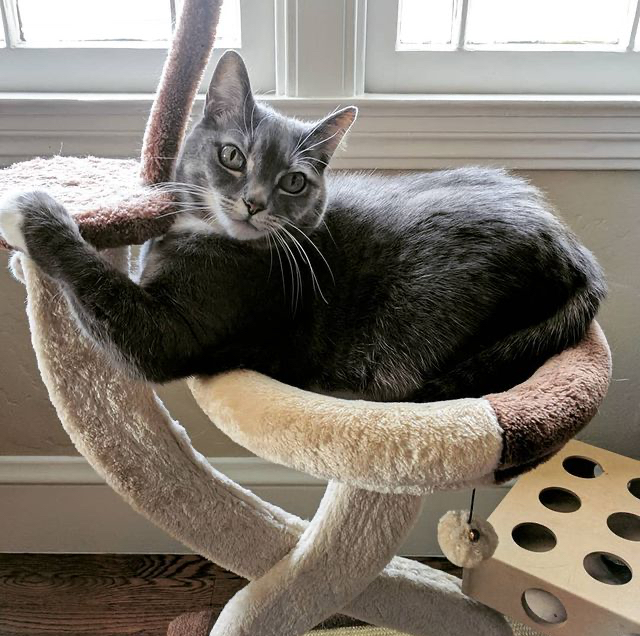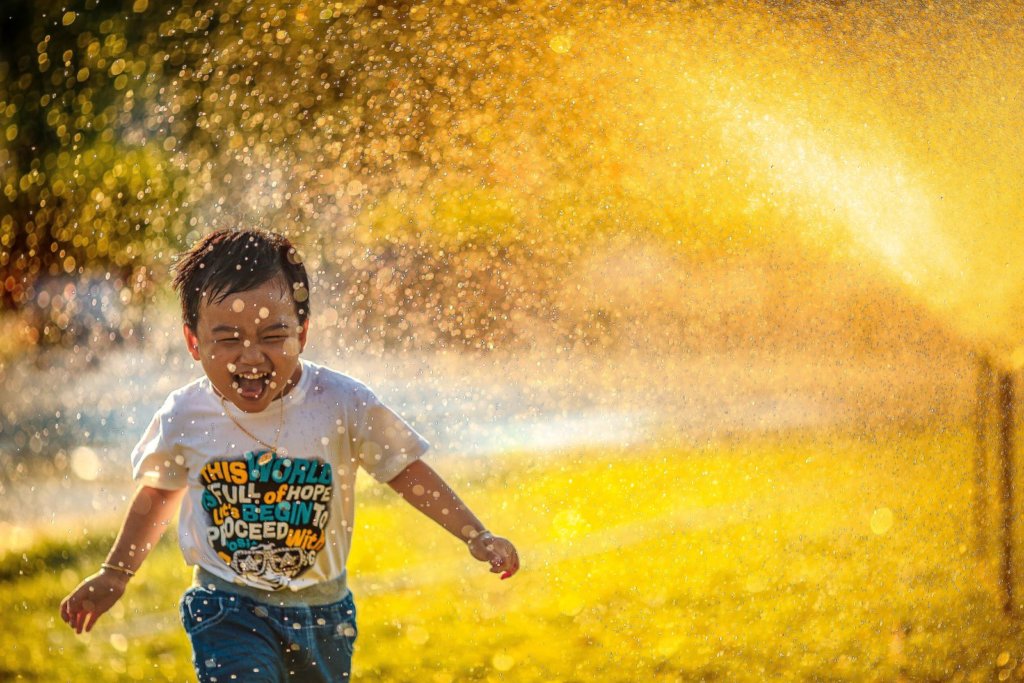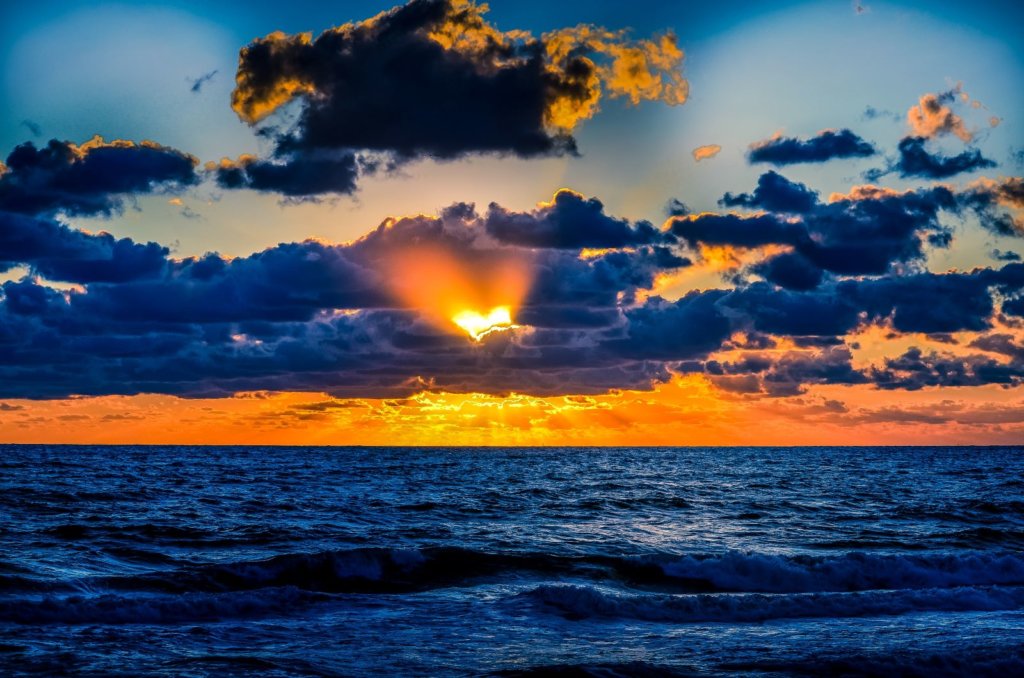Friday was my last day of work for my highest-paying freelance client. I’m not ashamed to admit I cried for multiple reasons. One, it’s an ending and it makes sense to cry when there’s a loss or a perceived loss. Two, I was hoping I’d have something else lined up by this point and I do not. So not only am I sad, I’m also scared because I’m confronting uncertainty. Yes, I have other clients, and yes, I have savings, but still. The bulk of my income came from this client and now the steady work I’ve had from them for nearly a year is gone.
The universe is always talking to me so you know what happened as soon as I turned in my last invoice? A dove flew to my living room window and then perched on the railing outside my apartment. We stared at one another for close to a full minute before the dove took off. That dove and I had a moment.
I looked up what doves mean and one website said, “What you see right now is your reality shifting in ways you never thought possible and that what you are indeed looking for is just around the corner. In this case, dove meaning shows that most chaos happens just before your dreams come true.”
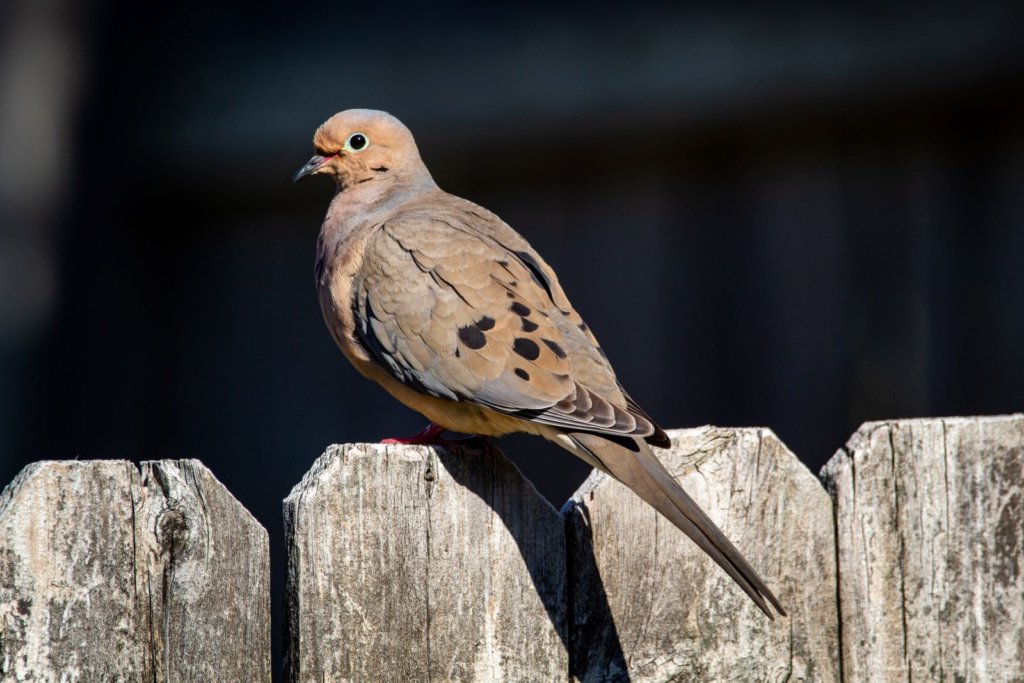
A close approximation of the dove I saw. Photo by Joshua J. Cotten on Unsplash
Well if that isn’t the most perfect message to receive right now, I don’t know what is. I’m certainly in the middle of chaos. The book Animal Speak says the message from dove is to mourn what has passed, but awaken to the promise of the future. I want to cry hearing that because I don’t know what my promised future is. I don’t have a freaking clue over here. All I have are a bunch of question marks.
When I become silent and still, what bubbles up is a prayer I like from Tosha Silver. In It’s Not Your Money, she writes:
“Divine Beloved, help me trust that there is a plan far beyond what I can see through my veil of fears and illusions. May I move in harmony with Your flow, knowing in every moment all needs will be met and You alone guide me. Fill me with Your nourishing and extravagant love. I am Yours, You are mine, we are One. All if well.”
The part that jumps out at me is recognizing there’s a plan beyond what I can see through my veil of fears and illusions. I may not know what’s next for me but I’m not a ship lost at sea. There is a plan and direction for my life. What it comes back to is surrender. Surrendering to what is, surrendering to a power greater than myself, surrendering to what the Divine Beloved wants for me. Throughout my life it’s become clear I don’t know what’s best for me. I thought being an editor at a magazine living in the suburbs somewhere would be a great idea. But the reality is, I’m a much better writer than I am an editor. I don’t want to edit other people’s work or shepherd their articles. I want to write my own. Or ghostwrite. And I never would have moved in that direction if it wasn’t for the push I received from the universe.
Over and over again I remind myself I’m an instrument for the Divine Beloved. I’m here to be of service and that means pushing aside my idea of how things should go. It means loosening self-will over and over again and instead being open to something else. I don’t know what that “something else” is, but if the dove is any indication, the universe will show me.
I dream of a world where we remember we aren’t alone. A world where we understand there is a force guiding us, helping us, providing for us. A world where we loosen our grip on self-will and open ourselves up to what’s in store for us, which could be something greater than we ever imagined.
Another world is not only possible, it’s probable.
Right now, Jews all over the world (myself included) are celebrating Passover. If you don’t know what Passover is or would like a refresher, it’s the story of Moses, the burning bush, and the 10 commandments. What continues to be most relevant in my opinion is how Moses commanded the Egyptian Pharaoh of the time to let the enslaved Jews go free, and the Pharaoh refused. As retribution, God delivered 10 plagues. (If you want to read the whole story, you can do so here.) If I had to summarize the story of Passover, it’s about escaping plagues and seeking freedom.
In Hebrew, the word for Egypt is Mitzrayim, which also means narrow spaces. Last year as we were in the early stages of COVID-19 and quarantine, Passover was especially symbolic. I think we all felt in an embodied way what it means to be in a narrow space either physically or emotionally.
This year society is in a different place and as such the holiday is resonating in a different way for me. Collectively, we’re still in the tight, narrow space, the metaphorical Egypt, but there’s also light at the end of the tunnel. We’re almost out of that place. And that’s what this holiday reminds us – that deep, dark, painful things happen to us in life, sometimes personally and sometimes collectively, but also there’s relief when those things are no longer there. That relief is what’s snagging my attention. Vaccines are rolling out and in my own state, everyone older than 16 will be eligible for vaccination by April 15th. I know there’s still time before it’s safe to breathe the same air as strangers without a mask, but still. We’re about to experience liberation and freedom in a way we have not since COVID-19 hit.
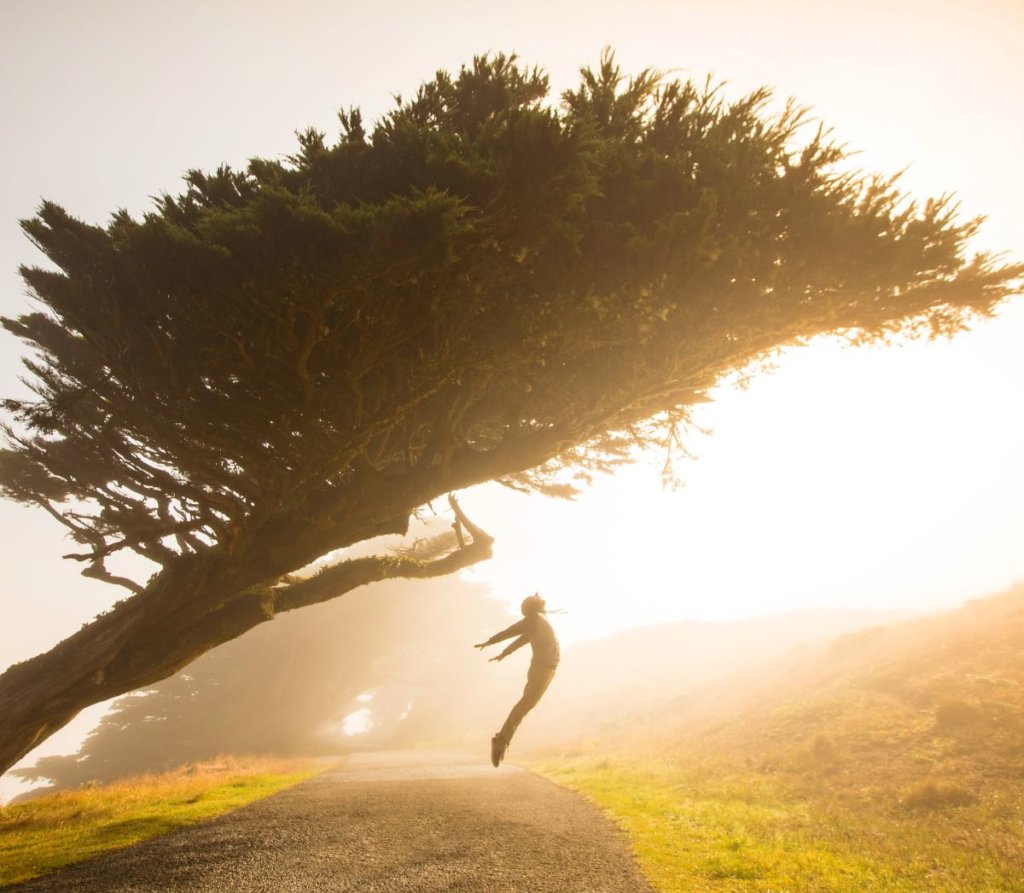
Free like this! Photo by Stephen Leonardi on Unsplash
To bring it back to Passover, I find it telling that when I said to a friend we should sing a melancholy song at our Zoom shabbat gathering, he said Passover isn’t a sad holiday. It’s joyous, it’s about celebrating freedom.
His comment struck me because so often I focus on the melancholy, the struggle, and not the joy. I know it’s premature to celebrate just yet because the pandemic is still affecting our lives – some more than others – but this holiday celebrates hope and courage without omitting the pain.
A quote that I think fits in nicely with the theme of Passover comes from Saint Bartholomew who said, “Many of us spend our whole lives running from feeling with the mistaken belief that you cannot bear the pain. But you have already borne the pain. What you have not done is feel all you are beyond the pain.”
Who are we beyond the pain of our personal and collective Mitzrayim? Who are we on the other side of transformation? Who will we be when we reach the metaphorical promised land? How will we operate? How will the world operate? I’m curious to find out. Passover reminds me of all this – pain and pleasure. But mostly, it reminds me how sweet it is to be free.
I dream of a world where we take heart from our ancestors. A world where we remember their lives – Jewish or not – were filled with not only suffering, but overcoming suffering. A world where we recognize we don’t have to run from pain because we’ve already experienced it countless times. A world where we feel all we are beyond the pain and remember how joyful freedom can be.
Another world is not only possible, it’s probable.
I keep thinking about the murders in Atlanta and what I can personally do other than what I’ve already done, which is to donate and speak out. What came to mind is writing on worldview. How you view the world is how you act in the world. If other people are less than, inferior, objects that exist solely for your pleasure, then it’s not hard to murder them or hurt them in some other way. The reverse is also true: If other people are equal to you, fellow human beings that have the same needs that you do, you’ll treat them with respect. Furthermore, the reality is we all need each other, we all have something special to give.
This concept is illustrated so beautifully in Gary Ferguson’s book The Eight Master Lessons of Nature. He writes about how each wildflower has its own strength that contributes to the whole. Some wildflowers have deeper roots that help them survive during drought periods and others have waxy leaves that allow them to contain moisture.
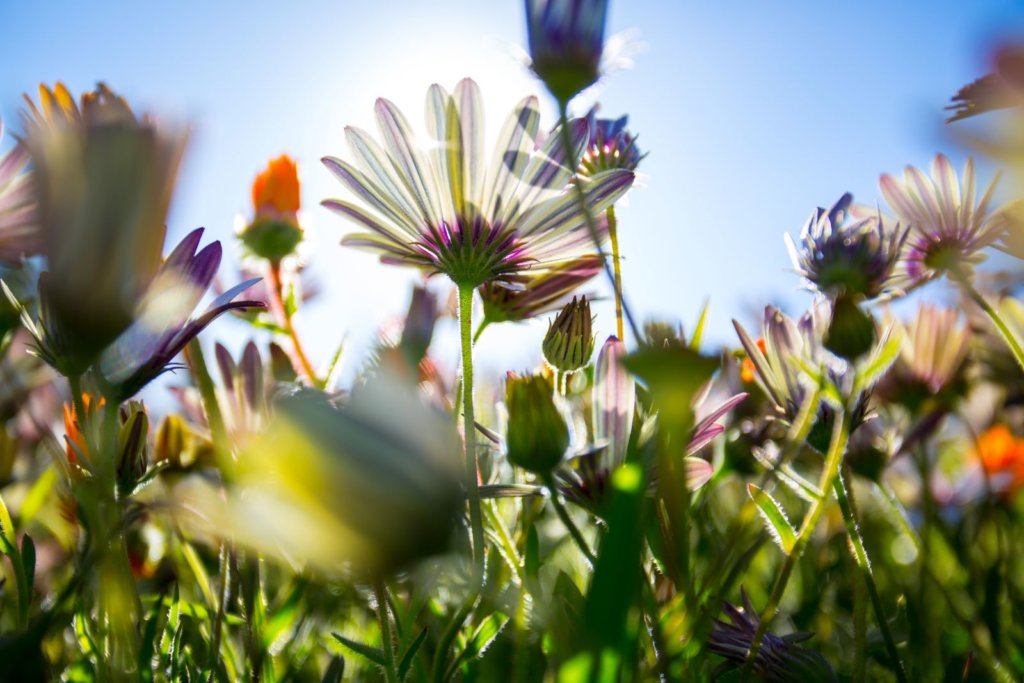
Variety is the spice of life for nature too! Photo by Gaston Roulstone on Unsplash
Every flower has a different survival strategy and together they keep the ecosystem flourishing. If all the flowers on a steep mountain slope perish, the soil would erode, the butterflies would flee, the elk would wander away, and the area would become a dead zone. Living among diversity is what keeps the area healthy. In other words, homogeneity spells death. That’s true not only for plants, but for humans too.
My spiritual teacher says:
“You should remember that human life is not like a single flower; it is like a bouquet or a garden of flowers blooming with many varieties of flowers. And this variety of blossoms adds to the collective beauty of the garden. Had there been only magnolia graniflora or one variety of rose only blooming in the garden, although that single flower might be very attractive, still the garden as a whole would not be very lovely. A garden is all the more beautiful because of the flowers of various types and hues.
“Similarly, we human beings must also move forward while maintaining a harmonious adjustment among all the diverse aspects of individual and collective life. We must discover unity in the midst of colorful diversity. Not only will we realize this in the future, we are realizing it even today, and thus we have been able to consolidate even our limited power. And you know that even a little power, if consolidated, becomes stronger than even a mighty force.”
We are stronger together and we are stronger diversified. There’s room not only for one kind of person, but for all people. And instead of trying to assert dominance of one group or another, let’s reminder that all of us together are what keep this planet and our society alive.
I dream of a world where we treasure the contributions that we each make. A world where we value diversity. A world where we understand we are stronger because of it. A world where we remember what the wildflowers teach us.
Another world is not only possible, it’s probable.
Last week I wrote about the perspective Bhutan has taken in this pandemic that everyone is a part of one big family and how that’s played out in terms of the country’s policies. Here in the U.S., the more prevalent perspective is one of rugged individualism and separateness. Instead of viewing all of us as being in this together, we operate from a materialist worldview that says only matter is real and humans are alienated from not only each other, but everything.
From this perspective, consciousness is a “strange aberration that happens as an accidental byproduct of chemical interactions,” to quote my friend Amal Jacobson. The materialist worldview says the cosmos doesn’t have any consciousness and thus it becomes much easier to objectify, well, everything. Nature doesn’t have any value beyond its utilitarian value. A tree is worth more dead than it is alive. Furthermore, nature becomes something “out there” that we go to. We see this in the way we, me included, talk about nature. “I was out in nature in this weekend” is a common phrase we all say.
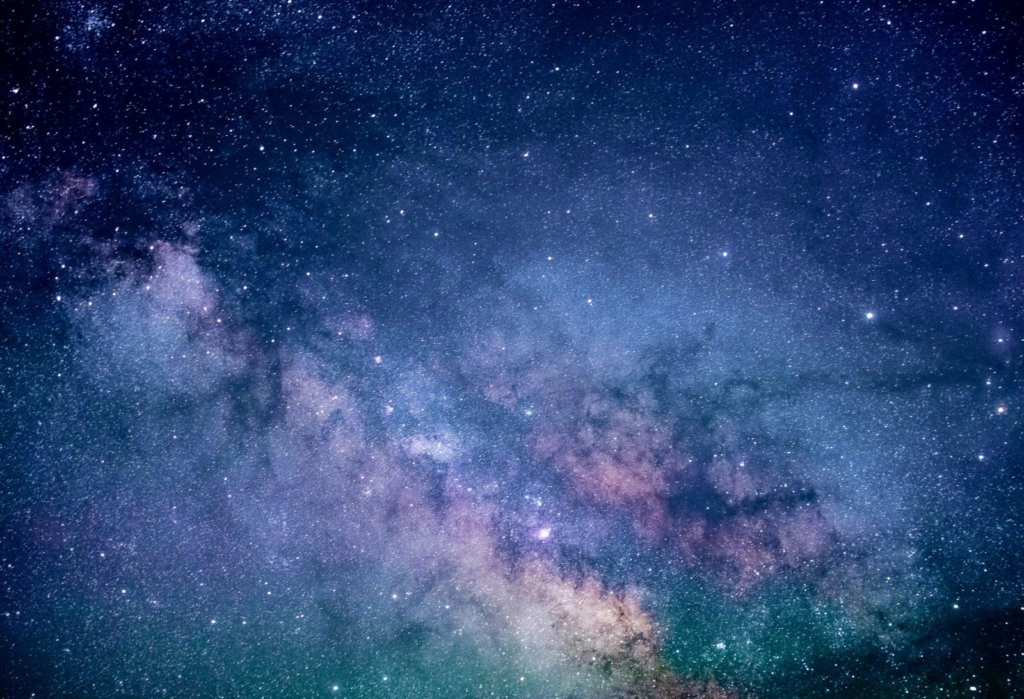
We are this and this is us. Photo by Jeremy Thomas on Unsplash
However, “out in nature” implies we’re separate from nature, that somehow we’re not included in this vast universe. The phrase also implies that we could ever get away from nature. That’s not possible even in the densest of cities because the very ground we stand on is nature, and furthermore, we are natural too.
Rebecca Solnit speaks to this in a Sierra magazine article when she writes, “It took the pervasiveness of radioactive fallout in the 1950s and pesticides in the 1960s to wake conservationists up to the fact that nothing is separate, and you can’t truly protect a place by setting it apart.”
You can’t protect a place by setting it apart because it’s impossible to truly be apart. That’s why there’s so much emphasis on intersectionality these days. We all intersect in various ways. Environmental justice goes hand in hand with social justice, for instance, because who typically pays the price for environmental destruction? Black, brown, and indigenous people. This cosmos is a spider web and if you pull on one thread, it vibrates the rest of them.
I have a friend who acknowledges this every morning in his prayers. He says, “I am eternally grateful to be an integrated particle in the infinite universe of your wisdom and will, and to live in your abundance and prosperity receiving your guidance, strength, mercy, and protection.” Gorgeous, right? I like the whole prayer, but in particular, I can’t help but wonder what would the world be like if we all felt this way? That we are an integrated particle that is only one part of a whole? The reality is materialism is a belief system just like what I’m proposing is also a belief system. Which one leads to a happier, healthier society? I think the answer is already obvious.
I dream of a world where we recognize no one is separate from one another. A world where we realize a thread of connection links not only human beings, but all beings. A world where we change our worldview and recognize we are an integrated particle of this vast universe and behave accordingly.
Another world is not only possible, it’s probable.
This weekend I had a small taste of what other people have been experiencing for the past year with this pandemic. Serenity, a cat I love and the closest I’ve come to a pet since I moved out of my parents’ house, died. Under normal circumstances, I would have been able to say goodbye to her in person but because of the pandemic, I said goodbye over Facetime.
I’m grateful I had the opportunity to say goodbye at all, but I would have much rather been able to pet her one last time. There are numerous crappy things about this pandemic but the worst, emotionally speaking, is the feeling of being alone. We already know this because we’ve experienced it ourselves, and I’m sure you’ve seen the news articles about the increase in mental health issues such as depression and anxiety during this pandemic. Grief is also something meant to be shared, and ideally in person. Online memorials and the like are better than nothing, but they’re not the same as in-person events.
I keep thinking about an article I read in the Atlantic nearly a month ago detailing Bhutan’s experience during this pandemic. It has me wondering, what would life be like in the U.S. if we followed Bhutan’s example? Would I have been able to say goodbye to Serenity in person?
As of late February, Bhutan only had one death from COVID-19. Not one death that day or week, one death period. Madeline Drexler writes nations like Bhutan, because there are others with low death rates, “offer plenty of lessons, from the importance of attentive leadership, the need to ensure that people have enough provisions and financial means to follow public-health guidance, and the shared understanding that individuals and communities must sacrifice to protect the well-being of all: elements that have been sorely lacking in the U.S.”
However, what struck me the most about the article is that the country made it possible for people to follow public-health guidance by providing economic and social support to those who need to quarantine or isolate. And furthermore, the king of Bhutan explicitly told government leaders that “even one death from COVID-19 would be too much for a small nation that regards itself as a family,” Drexler wrote.
Look, I know Bhutan is smaller than the U.S., that the politics are different, etc., but what would it feel like to have a sense we’re all in this together instead of every person being out for themselves? If the government just says “stay at home” but doesn’t offer support for doing so, we wind up with a situation like we currently have.
What would it be like if we all adopted Bhutan’s worldview that we’re one big family? That it was our responsibility to care for and protect our family members? How would we behave differently? I suspect it would be a much more enjoyable experience for us all.
I dream of a world where we care about ourselves and each other. A world where we recognize our actions have consequences even if they’re not readily apparent. A world where we remember we’re not alone even if it feels that way sometimes. A world where we embrace the idea we are one big family.
Another world is not only possible, it’s probable.
There’s a show on Netflix with teenagers that each have one magical power. One of the young women has the superpower of empathy. I feel incredulous whenever I think about it. “What?!? Who would write in empathy as a superpower?” I say this as an empath and a highly sensitive person.
Empaths sense subtle energy and absorb it from other people and environments into their bodies. Scientifically speaking, they have hyperresponsive mirror neurons so they deeply resonate with other people’s feelings. For instance, this summer as wildfires raged throughout California, I didn’t sleep well. As soon as the fires were mostly contained, I started sleeping better. It’s complicated because I had my personal worry about the fires, but it was amplified by everyone else’s worry.
A highly sensitive person, or HSP, is someone who has a low threshold for stimulation, needs alone time, is sensitive to light, sound, and smell, and has an aversion to large groups. It also takes HSPs longer to wind down after a busy day because their ability to transition from high stimulation to low stimulation is slower. If you’re interested in determining whether you’re an HSP, you can take a self-assessment test. In case you’re wondering, I answer “yes” to every single question.
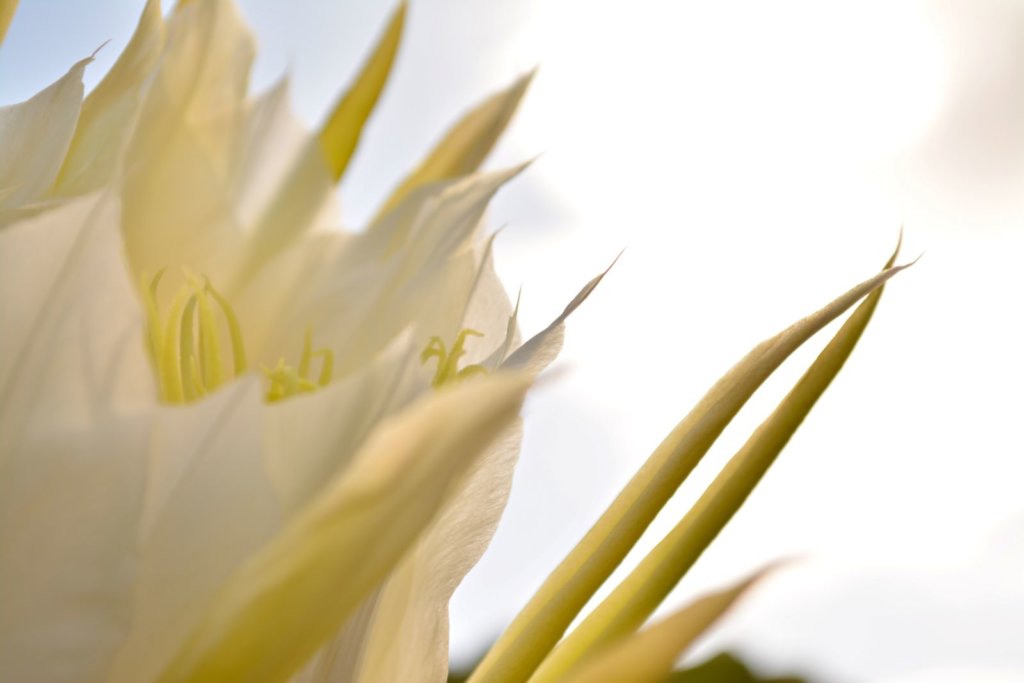
This came up when I searched for “sensitive.” Photo by Ermelinda Martín on Unsplash
It turns out high sensitivity affects about 20% of the population. It’s a genetic trait and it’s found not only in humans, but species like primates, dogs, goats, rats, and elk, to name a few. High sensitivity helps the evolution of each species because the highly sensitive ones more easily pick up on changes in the environment that are crucial for survival. They are the ones who first sense there are lions in the bushes for instance, researcher Dr. Elaine Aron tells us. And the nonsensitive ones drive off the lions.
You can be an HSP without being an empath, but that’s not the case for me. It’s challenging because it takes so much freaking effort for me to just live in the world. Things that other people don’t give a second thought – like going to a sports game back when we could do that safely – I have to weigh the pros and cons.
Most of the time, I think of sensitivity and empathy as gifts I’d like to return, but the reality is that doesn’t serve me. These two traits are genetic and I can’t change them any more than I can change my eye color. What’s the solution then? It may sound like a pat answer but the answer is self-acceptance. How do you learn to accept yourself? Oh man, I don’t know. That’s why people have written books and offer courses on the topic. It’s not something you can solve overnight.
A good entry point though is a modified version of the serenity prayer: “Grant me the serenity to accept the things I cannot change about myself, the courage to change the things I can, and the wisdom to know the difference.” From there, trust that the right actions will be shown and that you’ll have the courage to take them.
I dream of a world where we love and accept ourselves. A world where we embrace the uniqueness of every individual whether they’re a highly sensitive person or not. A world where we create space for all people to be themselves without elevating one person or another. A world where we realize humanity is like a garden filled with numerous flowers.
Another world is not only possible, it’s probable.
I keep thinking about the notion that my higher power wants me to be happy, joyous, and free. Due to the trauma in my background, it’s a heck of a lot easier to think God wants me to be sad, miserable, and suffering. That’s what happens with trauma – it rewires your brain and changes your perspective as a form of protection. It also certainly doesn’t help that I live in a Christian-dominant society, meaning, the idea I’ll be sent to hell for doing something wrong, is prevalent. And the thing about culture is we can’t escape it – it’s the air we breathe.
All of this is to say it’s easier for me to believe terrible things will happen in my life, to brace myself for the worst possible outcome. But is that really true? Isn’t it just as likely the best possible outcome could occur? And haven’t I seen evidence over and over again that things work out? Maybe not right away, but eventually? And if I’m wrong and things are actually terrible, which perspective makes me feel better: the optimistic one or the pessimistic one?
This isn’t a post about the benefit of optimism but rather joy itself. My spiritual philosophy emphasizes this over and over again, how we are all running after happiness. Not only human beings, but all beings. For instance, cats constantly seek warm, comfortable spots so they can curl up and sleep. We are all seeking joy.
The ancient Hindu scriptures, the Vedas, say, “This quinquelemental world has been born out of joy, is being maintained in joy, and into sacred joy will melt.” Wow. Let that statement sink in: The world was born out of joy, is being maintained in joy, and into sacred joy will melt. Instead of being a cold, cruel place, the world can be a beautiful, joyful one.
While typing this, a moth landed on my window and watching it I started thinking about the saying, “like moths to a flame.” It reminded me there’s a natural attraction in this world, that we are all drawn to something whether we’re conscious of it or not. That we’re pulled toward joy and maybe it doesn’t have to feel so difficult. Dancing brings joy. Singing brings joy. Looking at pictures of cute kids and baby animals brings joy. But so do things like serving others and meditating.
I’d like to end with a poem by Hafiz because I think it’s appropriate. It’s called “Tripping Over Joy”:
What is the difference
Between your experience of Existence
And that of a saint?
The saint knows
That the spiritual path
Is a sublime chess game with God
And that the Beloved
Has just made such a Fantastic Move
That the saint is now continually
Tripping over Joy
And bursting out in Laughter
And saying, “I Surrender!”
Whereas, my dear,
I am afraid you still think
You have a thousand serious moves.
I dream of a world where we are happy, joyous, and free. A world where we realize we are born out of joy and unto joy we shall return. A world where we remember there’s a force in the world that’s drawing us to it like a moth to a flame. A world where we realize that force is love and the process can be a joyful one.
Another world is not only possible, it’s probable.
Looking through my Facebook memories, it seems February is frequently a month that I walk along the razor’s edge of fear and faith. At any moment it’s easy for me to slip onto one side or another. It seems only fitting because February starts with the letter “F” after all.
While watching TV this weekend, I heard a line that resonated with me: “Faith is worthless if left untested.” How true. Faith doesn’t have any weight if it’s something passive or taken for granted. Faith only means something if you’ve had to live it. My journey, especially as an adult, is living in faith over and over again.
On Valentine’s Day 2008, I moved to the San Francisco Bay Area without a job, without a plan, knowing only my dad’s best friend and one other person. I had $2,000 in the bank and that was it. The journey was one big test of faith – how much did I want to live here? How much did I believe things would work out?
Similarly, the same situation happened again when I quit a stable job with zero savings and no job offers on the table. My safety net was thinking if I really needed it, I could move back in with my parents or start a GoFundMe. These days, I have my own business, which is something I never planned for myself, never anticipated. It always seemed too scary, too unstable. How would I get steady income? And sure enough, this week that’s exactly what I’m confronting.
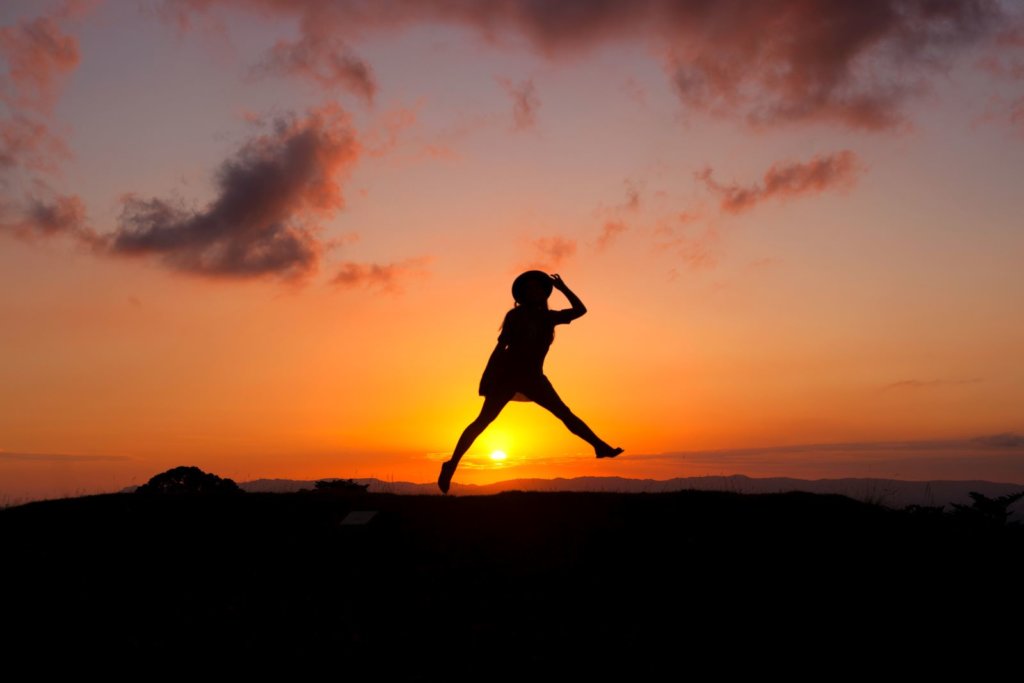
This picture, my goodness. Photo by Jordan Donaldson | @jordi.d on Unsplash
My highest paying client announced they’re going in a different direction and that means our work together is coming to an end soon. Cue the freak out as well as self-doubt. I’ve made an effort this week to come back to faith, to remember I’m not alone. That I’m in partnership with the universe and there’s a loving presence that wants me to be happy, joyous, and free.
On Saturday, I attended a live tarot card reading to offer guidance for the new lunar year. The cards that were pulled were about exactly this: Remembering we have gifts to offer others, that things work out when we follow our intuition, and also that there’s a mysterious force undergirding it all. When I reflect on numerous Februarys, I see that.
My spiritual path is based on the philosophy of Tantra and advises practitioners to: “Jump into your environment without the least hesitation. Don’t be afraid. Fear will leave you step by step. Tomorrow you will not be as fearful as you are today, the day after you will be even less fearful, and 10 days from now you’ll notice that you are completely fearless.”
I wouldn’t say that I’m completely fearless, but when I remember there’s a spirit that moves me, that moves everyone, I feel more faith. And in this moment, it’s hitting me strongly that I’ve done this over and over again: taken a leap of faith and wound up somewhere better than I ever imagined.
I dream of a world where we remember faith and fear are two sides of the same coin. A world where we realize faith is worthless if left untested. A world where we see there is a benevolent force in our lives that guides us, that loves us, and wants to see us succeed.
Another world is not only possible, it’s probable.
On Saturday, I remarked to some friends of mine that I’ve spent nearly a year querying literary agents for my novel and no one wants to represent me. One of my friends chimed in, “yet. No one wants to represent you yet.”
That word snagged my attention because there’s so much hope and faith wrapped up in three letters. “Yet” implies not now, but in the future. “Yet” means something is coming. I’m struggling to believe that right now not only with my novel, but also other things in my life. There’s no evidence to support what I want will be here soon.
My therapist reminded me I don’t have to believe what I want is coming to me 100% of the time. In those moments of doubt, instead I can ask myself, “What if?” What if there’s a literary agent out there who would love my novel? What if I could afford a beautiful house to live in? What if? Asking that question allows for possibility instead of shutting down hope.
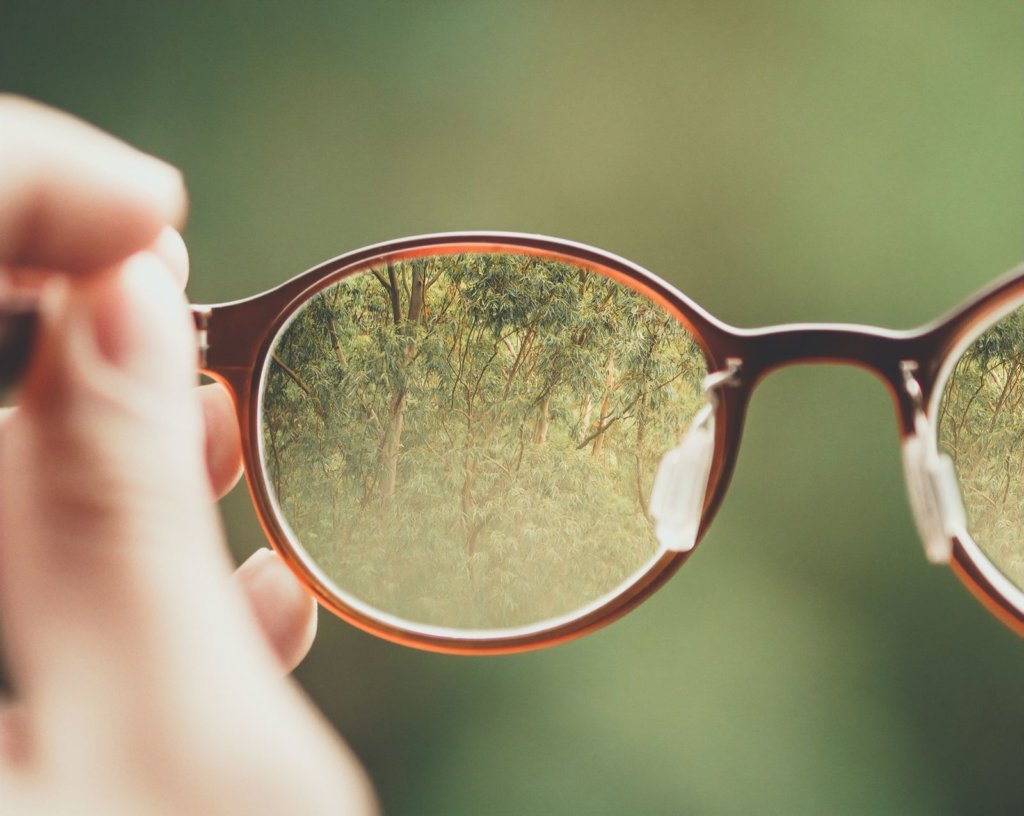
I love this picture because it shows the forest coming into focus. Photo by Bud Helisson on Unsplash
I also think about something my spiritual teacher said. He said, “The firmness of a person’s resolve makes one great. However lowly a person may be, one can become great by one’s determination. If you have a firm resolve to realize your goal, you shall become great. Without a firm resolution, you cannot achieve anything.”
Maybe a little bit of what’s happening here is my determination is being tested. How badly do I want these things? How much am I willing to overcome obstacles to achieve them? Am I someone who gives up when any problem arises? Or am I willing to struggle against all odds until my goal is achieved?
To be honest, it depends on the goal. The things I don’t care that much about, I’ll drop them at the first sign of trouble. If I don’t care that much in the first place and there’s a lot of effort involved, I’ll say “never mind.” However, if I care deeply, if I want something body and soul, I will keep plugging away indefinitely. Some of you know this, but I host a weekly group meditation. Since the pandemic hit, it’s cycled from being online to being in person outside with masks depending on the weather and daylight. (We’re currently back to online.) Sometimes group meditation is a group consisting of me and Spirit and that’s it. I’ve done this for literally years. I care about group meditation so much I show up every week regardless of who else attends.
Sometimes I’m filled with rancor about the lack of attendance, sometimes I feel peace about it, but I keep hosting anyway. Giving up doesn’t feel like an option because I’m the one that’s most harmed if I stop hosting. And every week I have hope someone else will show up because sometimes they do. The power of yet is powerful indeed.
I dream of a world where we remember just because we don’t have what we want at the moment doesn’t mean we never will. A world where we remember mighty tasks are bound to have mighty obstacles. A world where we use the power of yet to keep us going.
Another world is not only possible, it’s probable.
If I’m being honest, I’m not doing that great. I woke up this morning with a swollen eyelid – not eyelids plural, just the one – I haven’t slept well for the better part of two weeks, I’m so tired my ears are ringing, and I’m pretty sure I’ll bite someone’s head off if they look at me funny. I mention all that because I’d like to normalize the not-so-pretty states that go along with being human. It’s not possible to be authentically sunshine and roses every moment of every day. Just acknowledging this is my present reality I’ve noticed my breathing has deepened, which is a sure sign of relaxation.
I also mention all of this not in a quest for solutions because I already have plenty of those. What I don’t have plenty of is acceptance of what’s here – my cranky mood, my hurting body, my irritating situation.
A few weeks ago, I wrote that metaphorically speaking I’m living in a hallway, meaning I’m waiting on what’s next. I’m still living in a hallway. Nothing has changed yet and it’s frustrating. I know that eventually this period of my life will be a distant memory, but right now it’s not. The question becomes, how do I get comfortable with the uncomfortable? How do I manage this period of uncertainty and frustration? Something that’s helping me cope is remembering the secret to meditation. (Even if you don’t meditate, I hope you’ll still find this post useful.)
The secret to meditation is instead of being the subject, to become the object, meaning don’t think you’re the one meditating, rather you’re being meditated upon. Some people like to imagine they’re surrounded by eyes, that they’re witnessed from every direction by a power greater than themselves. As for me, I’m an empath and a highly sensitive person so what works for me is to instead feel. However, I have to be very specific and selective regarding what I feel, and in this instance, I imagine I’m in a bubble of love, that the love of the universe is pouring down on me. Not only do I imagine it, but I feel it.
I’m not sure who to attribute this poem to but I’ve read:
The pot is in the water;
The water is in the pot.
Water inside and outside.
If the pot is broken, the waters become one –
Only the wise understand this great idea.
When I feel the love that’s surrounding me, I’m a pot sitting in water, but there’s also water inside of me, meaning there’s also love inside me. Love exists inside of me and outside of me. There’s nowhere I can go to escape love. We are all surrounded by the love of the universe. I feel better when I remember that.
I dream of a world where we feel into the ever-present force of love. A world where we recognize love is all around us and inside us. A world where we realize we live in love bubbles and it’s up to us to tune into that frequency.
Another world is not only possible, it’s probable.
